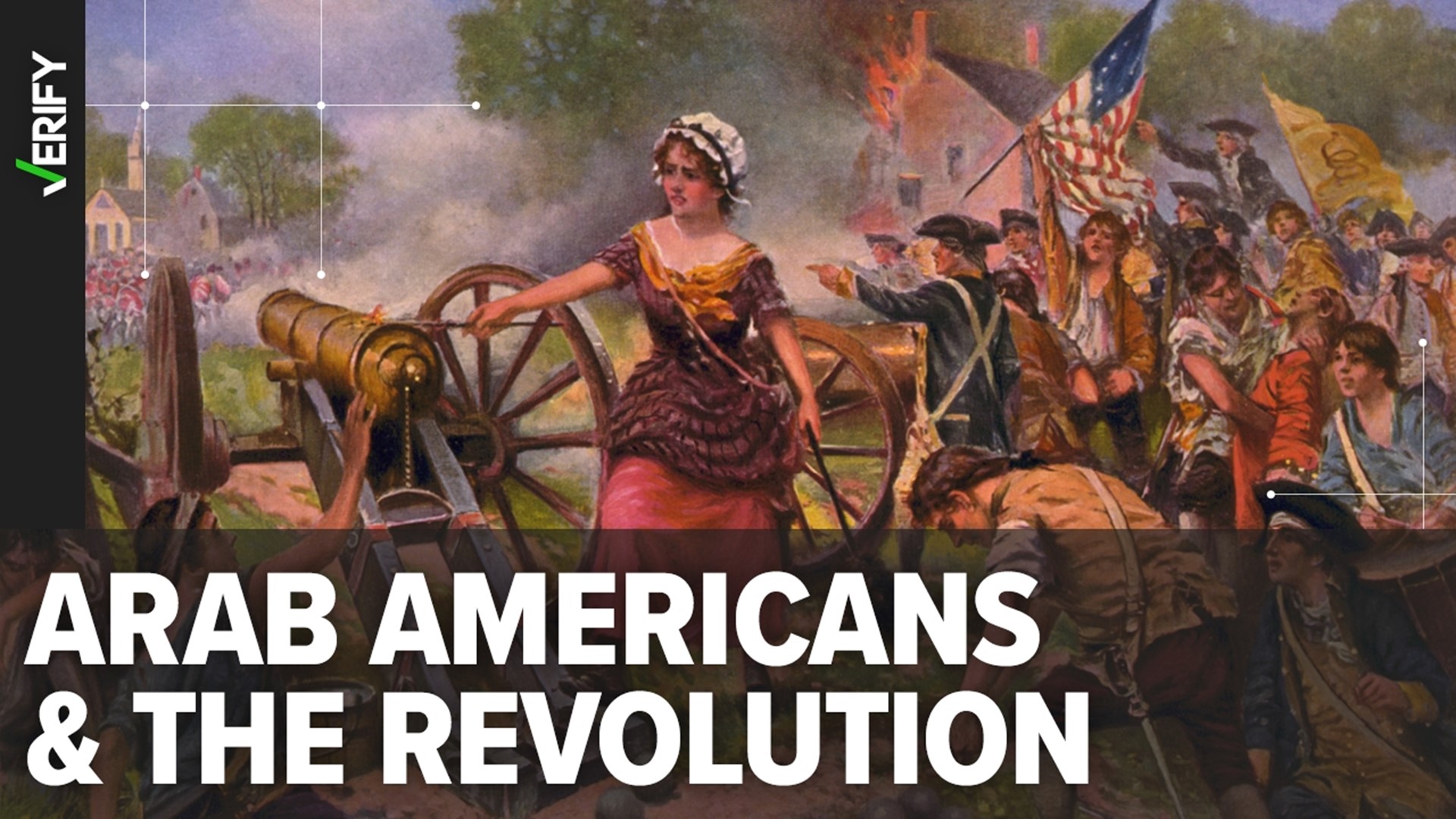April is National Arab American Heritage Month in the United States. It recognizes the achievements and contributions of the roughly 3.7 million Americans who can trace their roots back to an Arab country in the Middle East and North Africa.
Over the years, several people on social media, including Vice President Kamala Harris, have claimed that the history of Arab Americans in the U.S. stretches back to the Revolutionary War.
THE QUESTION
Did Arab Americans fight in the Revolutionary War?
THE SOURCES
- Library of Congress
- Smithsonian National Museum of African American History and Culture
- “For stars and stripes: American-Arabs in the U.S. military since the Revolutionary War” a book by author and lecturer Aladdin Elaasar
- Essay by Glen Browder, Ph.D., and Terri Ann Ognibene, Ph.D., for “What It Means to Be American,” a project of the Smithsonian’s National Museum of American History and Arizona State University
- Amin Nash, research fellow at the Arab American Civic Council in Anaheim, California
THE ANSWER
Yes, Arab Americans fought in the Revolutionary War.
WHAT WE FOUND
Arab Americans in the United States have a rich history dating back to the Revolutionary War. Historical records from the 1700s show there were at least two Arab Americans who fought for the Continental Army during the American Revolution — Army Private Nathan Badeen and Joseph Benenhaley, who served as a scout for the South Carolina militia.
Badeen was one of the first documented Arab Americans to enlist in the Continental Army during the Revolutionary War. Little is known about Badeen’s life before and after he arrived in what was then known as the thirteen colonies. However, author and lecturer Aladdin Elaasar wrote about Badeen in his 2010 book “For stars and stripes: American-Arabs in the U.S. military since the Revolutionary War.”
According to Elaasar’s research, Badeen, whose first name may have been spelled “Nahthan,” was from a family of farmers and merchants in what is now known as the Hauran region in Syria. It is believed that Badeen may have been kidnapped by French merchants while trading with them in the area near Latakia, a city in northwestern Syria.
Badeen was eventually taken to Canada where he either escaped or was put off the ship. He then traveled south into the American colonies, according to Elaasar, arriving at the beginning of the Revolutionary War.
In 1898, Nathan Goold, an author and librarian at the Maine Historical Society, published a book that contained the complete muster rolls, or roster, of Colonel Edmund Phinney’s 18th Regiment, a unit in the new Continental Army that was organized in Cambridge, Massachusetts. This regiment played a vital role in the battle to liberate Boston from Great Britain.
The records found in Goold’s book, which were obtained by the Library of Congress, indicate that a person named Nathan Badeen voluntarily enlisted in the Continental Army on Jan. 1, 1776. Badeen went on to fight for America until about May 23, 1776.
Elaasar wrote that Badeen’s commanding officer, Captain Abraham Tyler, reported that he died in the service of his country while posted at Fort George near Boston. The exact circumstances of Badeen’s death, and his final resting place, are unknown.
Another Arab American who fought in the Revolutionary War was Joseph Benenhaley (also known as Yusuf Ben Ali). Records indicate that Benenhaley was an Ottoman refugee from what is now present-day Turkey, according to an essay written by Glen Browder and Terri Ann Ognibene for the Smithsonian and Arizona State University’s “What It Means to Be American” project.
Eventually, Benenhaley made his way to an area in Sumter County, South Carolina, where he served as a scout for a militia commanded by General Thomas Sumter during the Revolutionary War. After the war, Sumter is said to have gifted Benenhaley some of the land on his plantation to farm and raise a family. His descendants still live in the area today.
Amin Nash, a research fellow at the Arab American Civic Council in Anaheim, California, says little is known about the lives of Badeen and Benenhaley because Arab immigrants at the time tended to shed their identities when they arrived in America.
“That's why we know so little because nobody took the time to record them as being from the Arab region, or as Middle Eastern, but more so as people who came from another land and they slowly became American,” Nash said.












